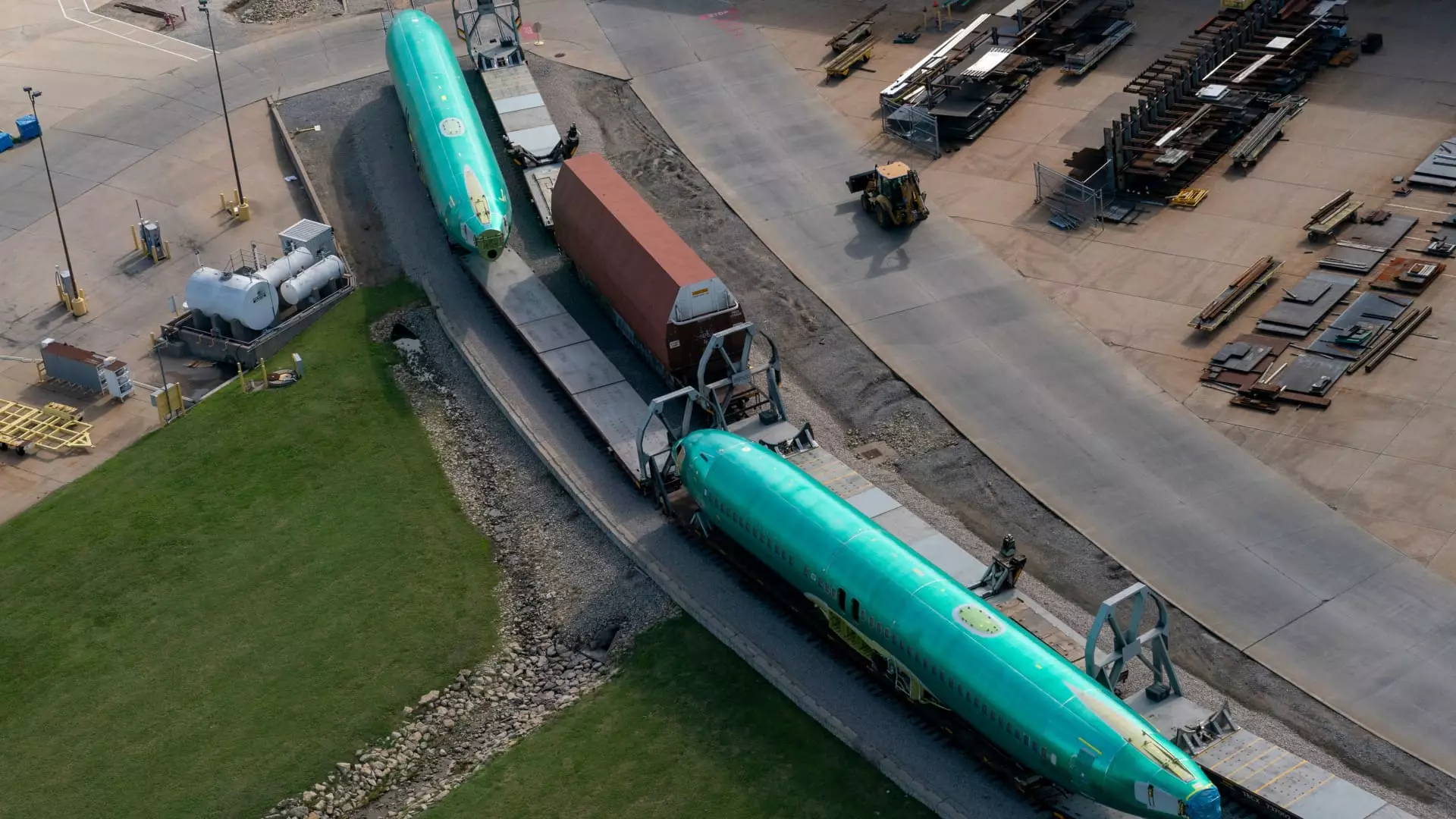The ongoing strike by Boeing’s machinists, now entering its sixth week, is profoundly affecting Spirit AeroSystems, a key player in the aerospace supply chain. With the future uncertain and Boeing facing significant production halts, Spirit is contemplating additional furloughs and layoffs for hundreds of its employees if the strike persists beyond November 25. This situation not only reflects the immediate impacts on workforce dynamics but also sheds light on the broader vulnerabilities within the aerospace sector.
Spirit AeroSystems, known for manufacturing fuselages for the Boeing 737 Max and other critical aircraft components, is already preparing to furlough approximately 700 workers at its Wichita, Kansas, facility. Although these furloughs are planned to last for 21 days commencing next week, the possibility of further reductions looms large. According to Joe Buccino, a spokesman for Spirit, no final decisions regarding additional layoffs have been made, but the company is clearly feeling the pressure from the strike’s indefinite nature.
The fact that already vulnerable supply chains are feeling significant strain underscores the interconnected nature of the aerospace sector. Manufacturers have been hesitant to make cuts to their workforce as they have only recently begun to recover from the pandemic-induced downturn, which had resulted in extensive layoffs. This reluctance further complicates the current scenario, as suppliers are caught between a necessity to stay operational and the unyielding realities posed by a prolonged work stoppage.
The strike has involved more than 32,000 machinists from the Puget Sound region, Oregon, and other locales who abandoned their posts on September 13 in opposition to a newly proposed labor contract. The walkout has subsequently stalled the production of several aircraft, amplifying concerns across the supply chain. Spirit’s current situation is emblematic of the broader challenges faced by Boeing suppliers, including pressure from the parent company to stabilize finances and maintain operational capabilities as they grapple with losses.
Adding to the turmoil, Spirit recently reported a staggering third-quarter net loss of $477 million—more than double that of the previous year. This financial strain, coupled with the uncertainty of the ongoing strike, raises concerns about the long-term sustainability of suppliers in the aerospace industry. As these companies navigate a complex economic landscape, the need for strategic decisions becomes paramount.
Boeing’s new CEO, Kelly Ortberg, has prioritized establishing a working relationship with the machinists and ending the strike, recognizing how critical it is for the company’s operational recovery and overall financial health. The union representing these workers has indicated its willingness to return to the bargaining table, presenting a potential avenue for resolution and stability. The scenario at Spirit AeroSystems is not merely a tale of workforce management but highlights a significant crossroads in the aerospace industry—a delicate balance between labor disputes, financial viability, and the broader implications for supply chain resilience.
The strikes continue to test the aerospace supply chain, with companies like Spirit AeroSystems at the forefront of these challenges. Until a resolution is reached, the industry will remain in a precarious position, emphasizing the need for swift and impactful negotiations to restore both morale and operational continuity.


Leave a Reply